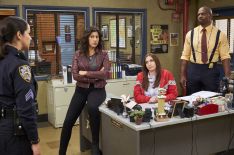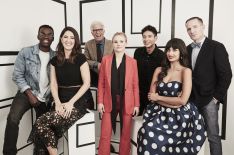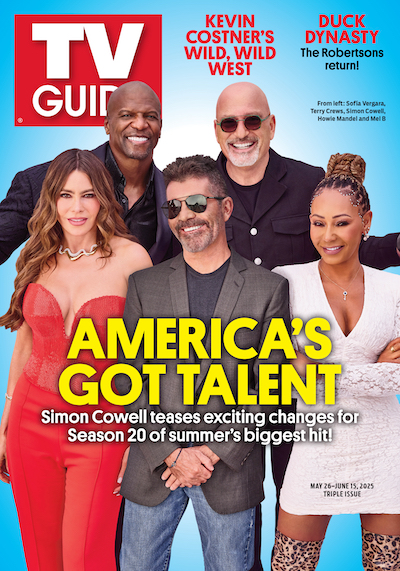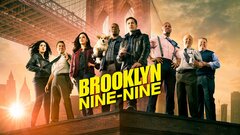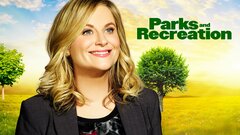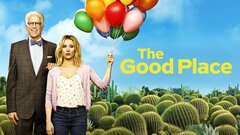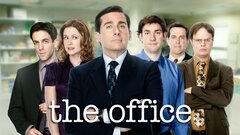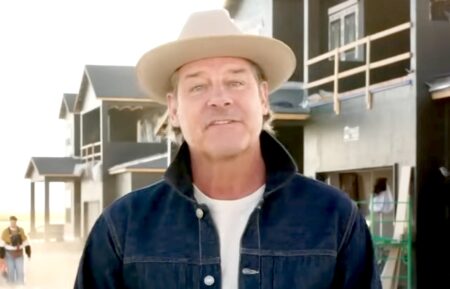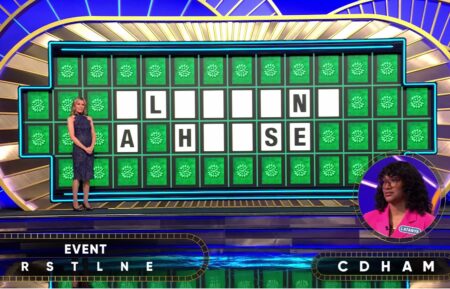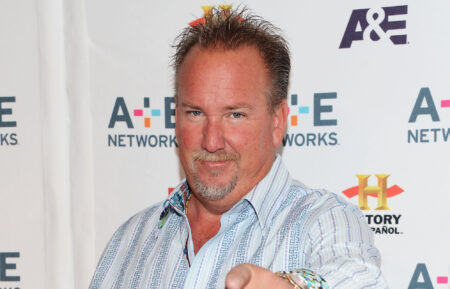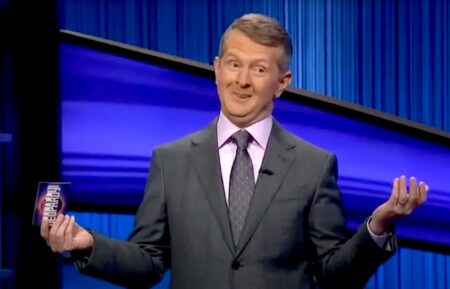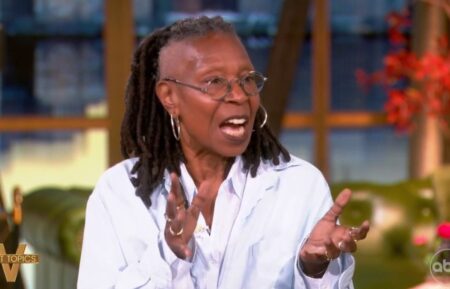The Magic of Michael Schur’s Sitcoms: Why ‘The Good Place,’ ‘Parks and Rec’ & More Are So Rewatchable
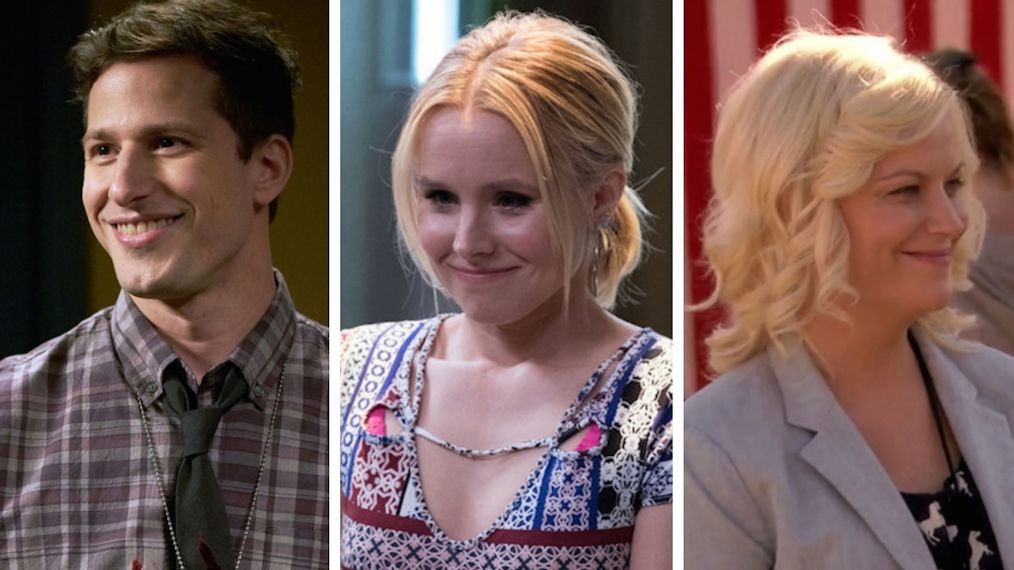
Opinion
If you’re a fan of network comedy, you know the name “Michael Schur.” Even if you think you don’t, you do. Schur has produced, created and written for some of television’s most beloved sitcoms: The Office, Parks and Recreation, Brooklyn Nine-Nine and The Good Place among them.
These shows are cherished by their devoted fanbases and the general public, often long after their final episodes have aired. Though their premises couldn’t be more different, there are several commonalties that appear among them and help explain why these characters are so beloved and episodes are so rewatchable.
Here’s why we think Schur’s sitcoms retain their magic.
Outlandish situations, relatable characters
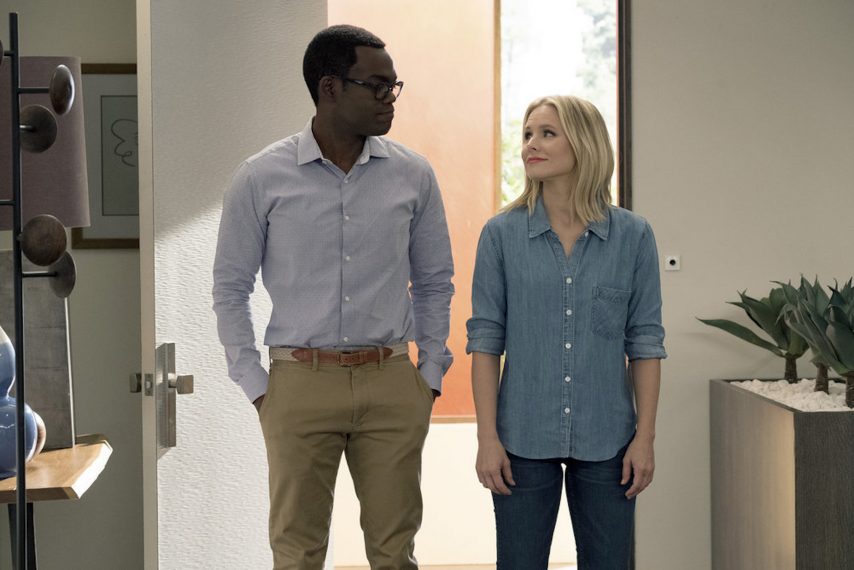
Though the issues his characters find themselves facing might not be ones we face in everyday life — such as whether or not we belong in “The Good Place” — Schur’s characters are usually relatable regardless of whether or not the series’ premise is realistic. For example: though his viewers might not work in law enforcement or might not understand how a police precinct works, the characters are written in a way that endears them to a larger audience, and makes them relatable (or funny enough to be laughed at).
Stripping characters of the shows’ premises makes them pretty normal; Eleanor’s a self-professed “Arizona dirtbag” with a selfishness problem, Leslie’s a cheerful workaholic in a small town, Jake’s a detective in a big city and the entire cast of The Office… well, works in an office that, at its core, could represent any 9-to-5 cubicle-based business. That extraordinary normality makes it easy to step into their shoes and empathize with them — and to laugh at them when the time comes.
Genre subversion
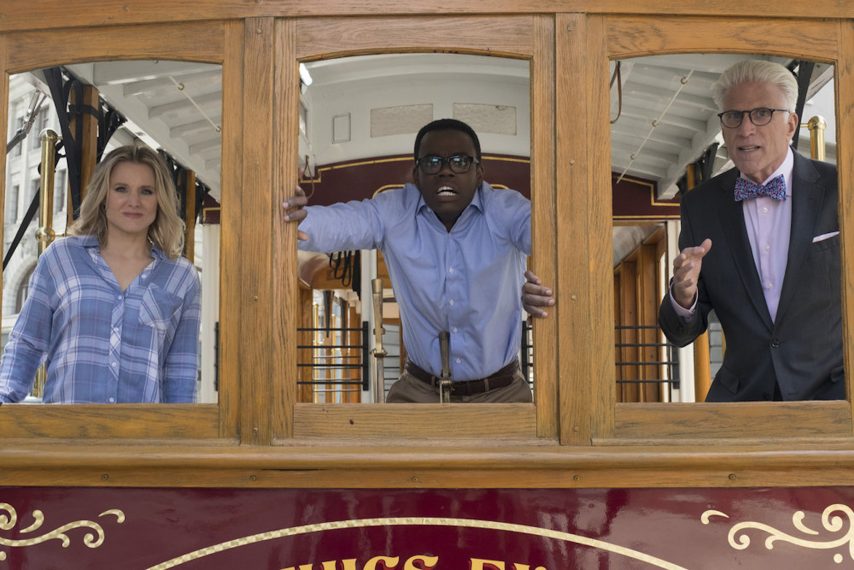
Though his works are comedies through and through, Schur has done something unique with his more recent shows, especially The Good Place: he’s shifted and tested the tried-and-true comedy formula.
Using Eleanor’s antics as an example, Schur’s most recent program is different than the majority on layers of levels. The Good Place (and sometimes Brooklyn Nine-Nine) both utilize cliffhangers at the end of their episodes, a move typically employed by longer programs but not half-hour comedies (except in midseason or season finales). This makes them intensely binge-able. Who isn’t wondering why Jianyu sent Eleanor a note saying she didn’t belong in The Good Place?
Furthermore, The Good Place’s tight, complex storylines and tendency to overturn its premise several times per season share more similarities with longer programs than with a typical comedy show. In Season 2 alone, the show featured a variety of plot twists regarding characters, locations and situations that weren’t necessarily predictable from a mile away, or even at the beginning of the episode. Schur consulted with Damon Lindelof of Lost regarding the first season and its major twist, and has said the show was inspired by the ABC sci-fi hit…and that inspiration shows in all the best ways.
Making you laugh, never laughing at you
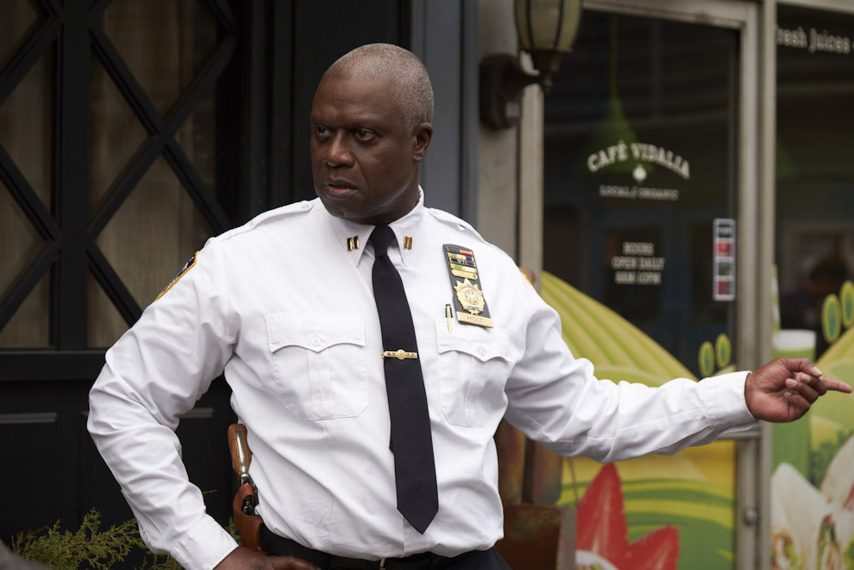
Though no comedy can maintain political correctness at every turn, Schur’s shows do a marvelous job of getting laughs without leaning on sexism, racism, homophobia or any kind of marginalization. Though The Office did employ this technique from time to time, the shows Schur was most heavily involved with maintain that when things are funny, they’re rarely funny at the expense of a minority. It’s a refreshing technique when compared to other network comedies, which often mine their laughs from stereotypes about differing races or genders.
Embracing diversity
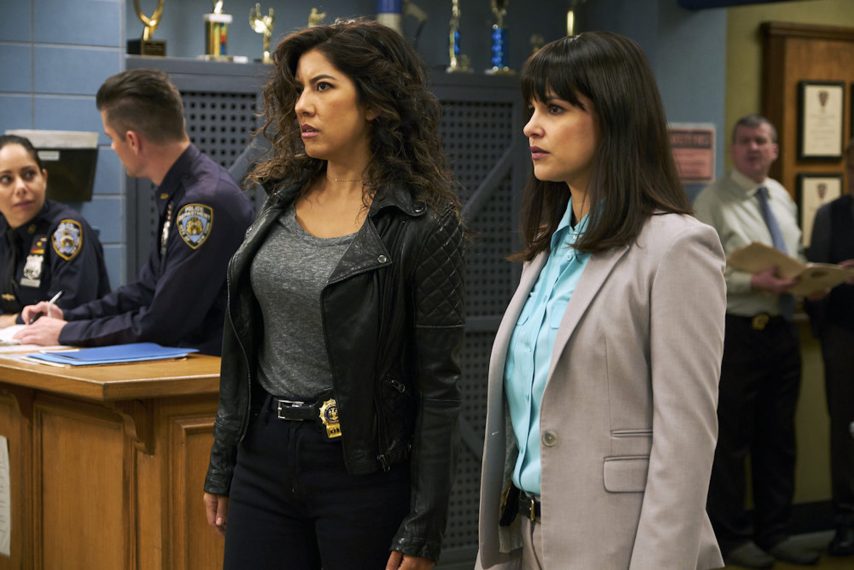
Schur’s works often go even a step further. Not only do they feature minority characters for more than serving as the butt of a joke, but they feature minority characters in non-stereotypical positions, often those of power. Brooklyn Nine-Nine’s Captain Raymond Holt is a great example. Both black and a member of the LGBT community (he’s happily married to his husband, Kevin), the show places him on the highest level of the precinct rather than giving that role to a white, straight man.
Parks and Rec’s Tom is another example. While he doesn’t run things in the Parks department, he’s also not a fixture in the background or relegated to an I.T. support role, nor does he talk with an accent (he was born in South Carolina).
Returning to Brooklyn, the show’s decision to cast multiple black and Latina characters marks it as a trailblazer for diversity in Hollywood comedy. Characters like Rosa, Amy, Holt and Terry often specifically oppose or subvert genre tropes, with Terry as a devoted family man and Rosa and Gina as brilliant detectives. These characters could be written as walking tropes, and in other writers’ rooms, they might be. But on Schur’s shows, humor typically doesn’t come from gender, skin color or sexual orientation, and it’s refreshing to watch.
Healthy relationships
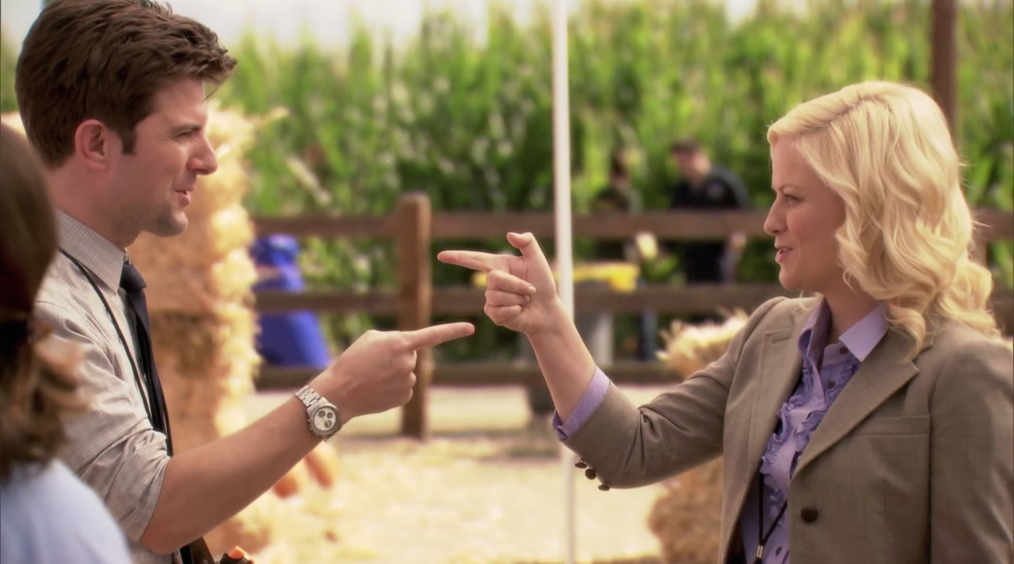
One of the largest cornerstones of a Schur comedy is its central relationship between two major characters, like Leslie and Ben, Jim and Pam, Jake and Amy and Eleanor and Chidi. On the surface, these couples are quite a bit different — there aren’t many similarities in the way they met or in the characters in the relationship — but they have one thing in common: a lack of cheap relationship drama.
The internet has already noted a myriad of times that these shows defy traditional genre expectations with their major pairings. Not only do these couples traditionally marry and stay married through the end of their show’s run, and during both dating and marriage rarely succumb to pitfalls like cheating, constant bickering, tearing each other down or “taking a break.” When these characters have trouble in their relationship, they don’t instantly break up or ignore each other: they work on them, and stay together by communicating with each other openly and honestly.
These characters genuinely love and support each other and make each other better, and want the other person to succeed even if it means sacrificing some of their own goals. These wholesome ‘ships are a heartwarming cornerstone for their respective shows, and great representations of how healthy adult relationships should work.
Real-life problems
Though some of Schur’s episodes tackle situations that wouldn’t happen in the real world, others take an honest look at today’s relevant topics, often with tearjerker results that stick with viewers long after the credits have rolled. Nine-Nine does this with regularity, though Parks featured several installments that dealt with major headlines at the time, tackling sexism in politics and even a government shutdown.
Since Nine-Nine features a cast of police detectives, it might be best poised to take on these situations and topics and does so with regularity. Notable examples include Season 5’s “Show Me Going,” which placed Rosa in the middle of an active shooter situation and showed the effect her presence there had on the precinct; Season 4’s “Moo Moo,” which showed Terry grappling with being racially profiled by another officer in the NYPD; Season 5’s “Game Night,” which featured Rosa coming out as bisexual to less-than-accepting parents; and Season 1’s “Old School,” which discussed homophobia in the police force.
Strong Friendships
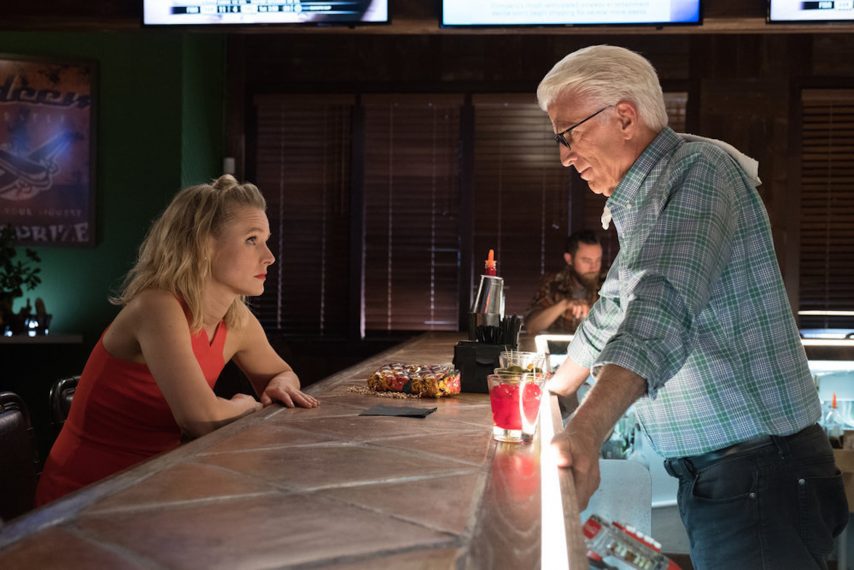
Colleen Hayes/NBC
Schur’s sitcoms are by no means the only shows to portray good friendships, but they’re a common, heartwarming thread among them.These kinds of unique platonic relationships can be pretty rare on network TV. Stereotypically, women might be passive-aggressive toward each other instead of kind, men tend not to show any kind of emotion — friendly or otherwise — toward another man and it’s difficult to find a friendship between a man and a woman not serving as a one-way street to romance. In every Schur sitcom, the key relationships driving plot are often those among friends; friendships between men and women, between women, and between men.
Schur shows excel at all of the above. The friendship between Ann and Leslie was a cornerstone on which many episodes (and sweet, supportive quips) of Parks rested, as was the long-standing camaraderie between Leslie and Ron. Ben and Chris were great friends, as well as Ron and April, though Ron Swanson would never admit to having a friend. Pretty much everyone in the 99th precinct is friends with each other, but notable pals include Jake and Boyle, Jake and Holt, Rosa and Amy and Terry and Jake. Circumstance all but forced Team Cockroach to be friends with each other on The Good Place, but the standout relationships are Eleanor and Michael and Eleanor and Tahani (though Eleanor once said she might “legit be into her“). Even on The Office, where he served as co-executive producer, great friendships existed: perhaps most notably between Michael and Dwight.
From TV Guide Magazine
'America's Got Talent': Simon Cowell Teases Big Changes in Season 20 as Mel B. Returns
The show’s judges and host preview the landmark season and reflect on how they’re keeping it fresh. Read the story now on TV Insider.

